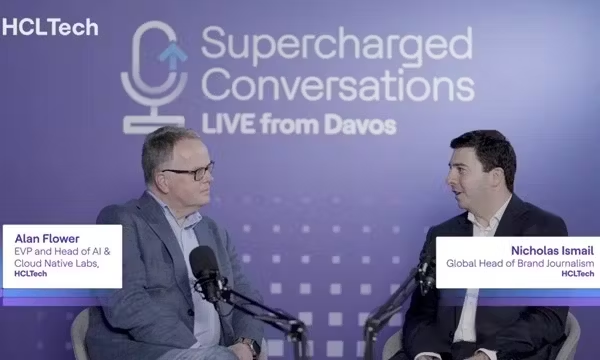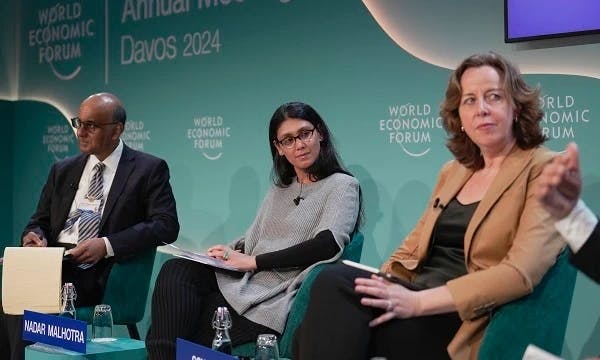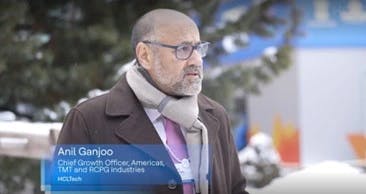Video
Section CTA
Agentic AI: Unlocking Exponential Productivity
Agentic AI has the potential to lead us into a world of revolutionary change, enabling possibilities we couldn’t have imagined before. Featuring insights from Vijay Guntur, HCLTech, Teresa Hutson, Microsoft, Shez Partovi, Royal Philips and Thomas Saueressig, SAP SE, with Dr. Saikat Chaudhuri.

Playing now
Agentic AI: Unlocking Exponential Productivity
Agentic AI has the potential to lead us into a world of revolutionary change, enabling possibilities we couldn’t have imagined before. Featuring insights from Vijay Guntur, HCLTech, Teresa Hutson, Microsoft, Shez Partovi, Royal Philips and Thomas Saueressig, SAP SE, with Dr. Saikat Chaudhuri.

Playing now
Gen Z as Catalysts for Progress
A conversation exploring how Gen Z is reshaping workplace cultures and redefining inclusivity and innovation. Featuring insights from Hae In Kim, Hyundai Motors, Jill Kouri, HCLTech, Nancy Xu, Moonhub and Svenja Gudell, Chief Economist, Indeed and Vice Chair, FESAC, with Dr. Saikat Chaudhuri.

Playing now
Scaling AI Responsibly
As AI continues to advance rapidly, scaling it responsibly has become critical for both innovation and competitive advantage. Featuring insights from Jayee Koffey, BNY, Yossi Matias, Google, Alan Flower, HCLTech, with moderator Dr. Saikat Chaudhuri, UC Berkeley.

Playing now
AI's Role in Transforming Manufacturing
The manufacturing industry is undergoing constant, incremental transformation driven by advancements in AI and automation. Featuring insights from Alexandra Schwertner-Farley, Rockwell Automation, Paul Baldassari, Flex and Ajay Bahl, HCLTech, with moderator Dr. Saikat Chaudhuri, UC Berkeley.

Playing now
Financial Services Data Economy
Technological innovation, collaborative partnerships, and regulatory balance are shaping the future of financial services. Featuring insights from Sebastien Danloy, Euroclear, Valerie Bannert-Thurner, Nasdaq, Stefany Bello, Mastercard and Srinivasan Seshadri, HCLTech, with Dr. Saikat Chaudhuri.

Playing now
In conversation with Alan Flower
Join Alan Flower, EVP and Head of AI & Cloud Native Labs, HCLTech and Nick Ismail, Trends and Insights on this special episode from Davos. They discuss how balancing AI and ethical innovation are key to shaping the intelligent age driven by both progress and responsibility.
Podcast
Section CTA

0:00
progress
00:00
Episode 22: The growing impact of AI: From technical realm to business domains
In this podcast, Nick Ismail is joined by Alan Flower, EVP and Global Head of Cloud and AI Labs at HCLTech as they discuss the latest trends in AI adoption, live from the World AI Summit in Amsterdam.
Subscribe to the HCLTech Newsletter
for our latest news and insights































